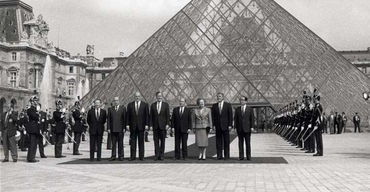This is not the first time France will host the G7. It was actually France that launched the G6, 44 years ago:
1975: Addressing the first oil crisis
In 1975, citizens across the world suffered the consequences of the first oil crisis. In order to respond effectively, French President Valéry Giscard d’Estaing brought together the future G7 members (except Canada) in Rambouillet. N.B. the declaration adopted at the 1975 Summit already demonstrated the member countries’ sense of responsibility to the poorest countries. That remains the sense of the G7 today, as its goal in 2019 is to combat inequality.
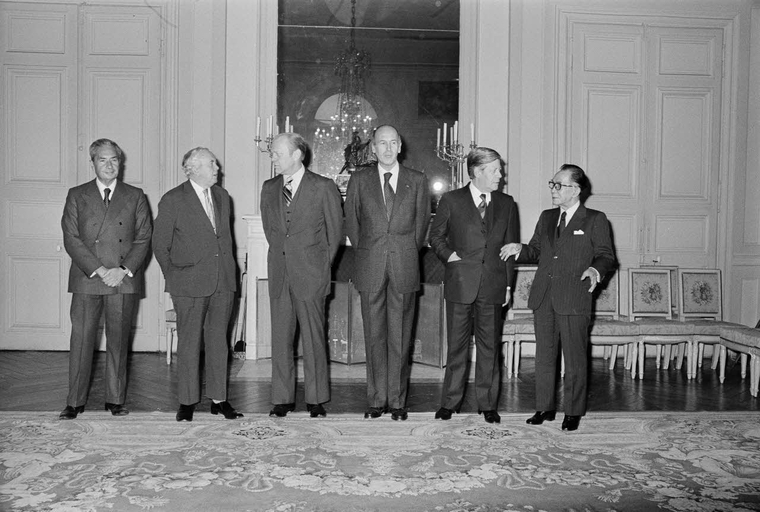
1982: Assistance to developing countries
Seven years on, the scope of the discussions had expanded. The Versailles Summit, under the Presidency of François Mitterrand in 1982, focused on the economy, international trade, energy issues, information and communication technologies and international political issues such as the Falklands crisis and the war in Lebanon. A consensus emerged in Versailles as to the need to step up development assistance, and support for developing countries has been central to talks ever since.
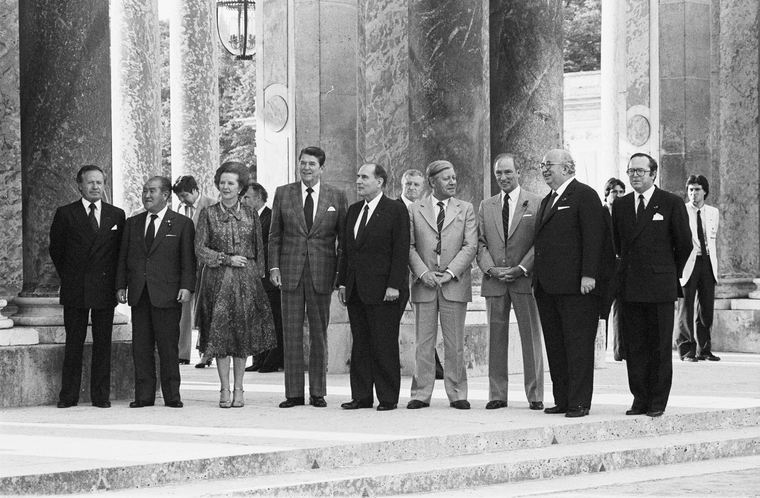
1989: Recognition of shared values
The date was a symbolic coincidence. The 1989 Summit happened to coincide with the 200th anniversary of the French Revolution, an opportunity for participants to reaffirm their commitment to a foundation of shared values, including commitment to democracy, human rights, the free market and international law. The issues of developing countries’ debt and climate change were central to talks. The Summit also saw the creation of one of the major international security achievements of the G7: the creation of the Financial Action Task Force (FATF) to combat money laundering and the financing of terrorism.
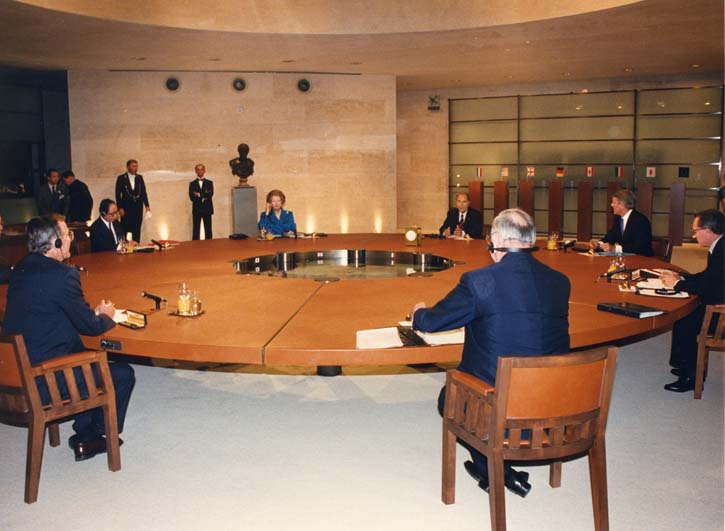
1996: Globalization for the benefit of all
The Lyon Summit was held in 1996, during the Presidency of Jacques Chirac. He decided to make the Summit an opportunity to promote globalization for the benefit of all. An agreement was reached on debt alleviation for the poorest countries. Lastly, measures were adopted to coordinate the fight against drugs and organized crime.
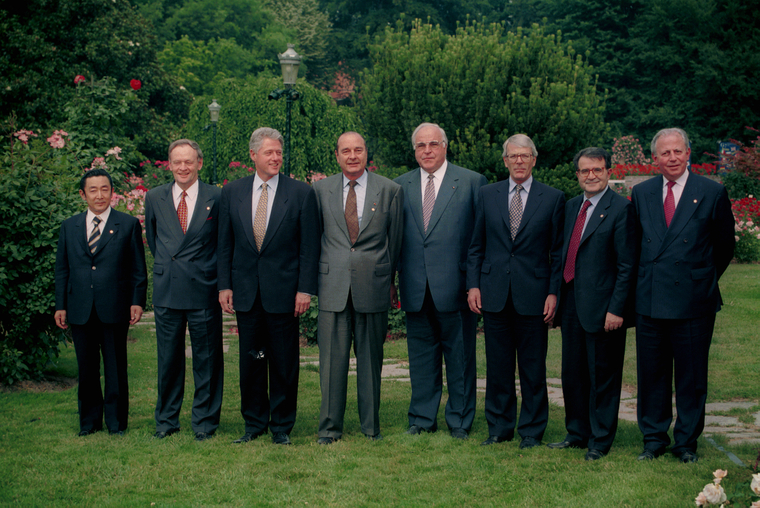
2003: The environment and inclusion of African countries
The Évian Summit in 2003 was the first to expand Summit invitations to include African countries. Algeria, Egypt, Morocco, Nigeria, Senegal and South Africa were invited to join the discussions. The environment was also high on the agenda, and action plans were drawn up on water, health and famine in Africa. The shrinking of the ozone layer was also a key concern.
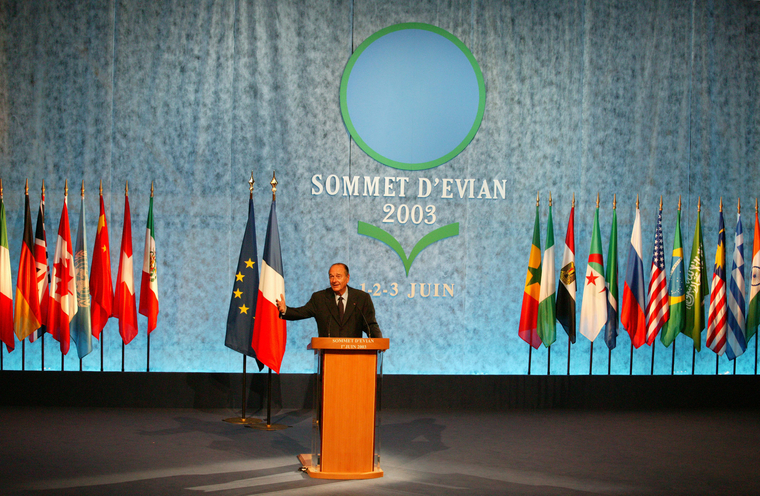
2011: Commitment for democracy
The Deauville Summit, held under the Presidency of Nicolas Sarkozy in 2011, took place a few months after the Arab Springs began. They became the central subject of the talks, giving rise to the Deauville Partnership: enhanced economic support and funding of $70 billion were adopted in order to support democratic transitions in Arab countries.
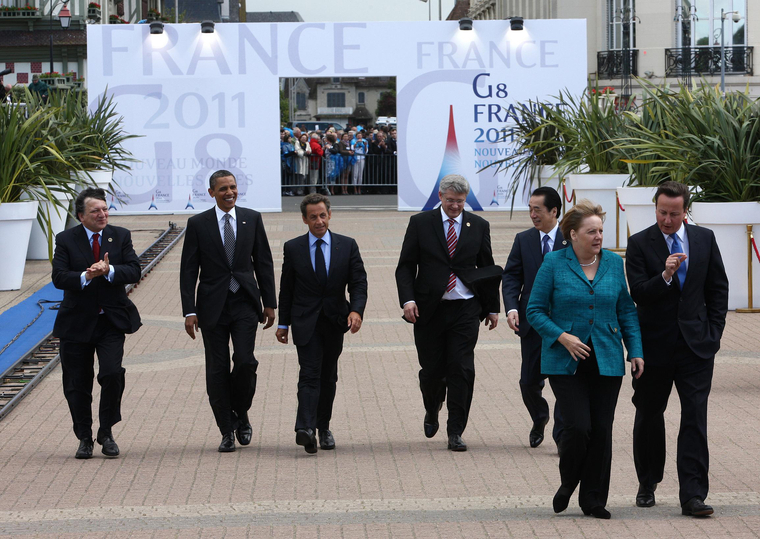
From 1975 to 2019, the G7 has been the forum for 44 years of dialogue and decisions that have transformed the daily lives of the world’s citizens and made history. Today, even simply talking and working together is being undermined in a world divided by inequality. Our goal is to address the reality of today’s world and respond pragmatically.
